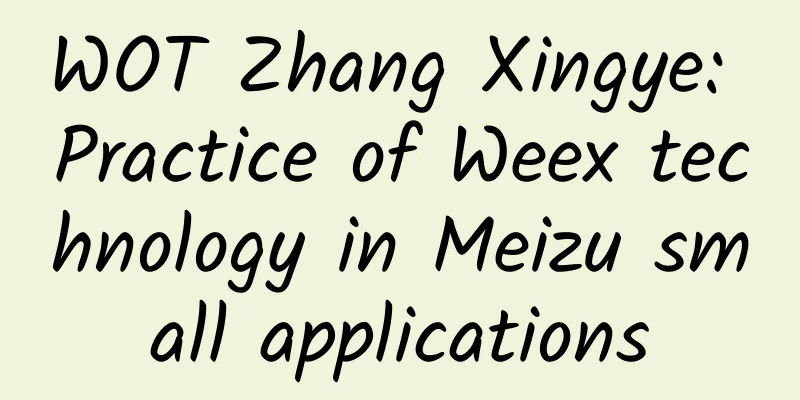Are primary and secondary school students addicted to "nasal energy bars"? The more they inhale, the more addicted they become?

|
Recently, two primary school students in Tianjin brought "nasal energy bars" to a supermarket and asked the boss to restock them, saying that the stuff was "extremely addictive" and that it came in many flavors, including mint and watermelon. After the incident was reported, it attracted public attention. "One puff before going to school, one puff after class." Following the carrot knife, a thing called "nasal energy bar" became popular among students. It looks like a stick-shaped plastic tube, and it is mostly filled with camphor, mint and other ingredients. Although merchants claim that such products are "pure and non-toxic", many parents are still concerned about whether the ingredients in them will harm their children's health. Are "nasal energy bars" really non-toxic and harmless? Are they addictive? From the merchants' publicity, the products are mainly made of menthol, borneol, plant essential oils and other ingredients, with various smells, such as Red Bull and watermelon. Some products also contain a variety of liquor ingredients to attract consumers to buy. Some merchants also said in their introduction that it is suitable for use in class to refresh oneself. Judging from the comments of consumers, many students buy them for this purpose, and some parents buy them for their children to play with. China News Network reporters asked an e-commerce store that sells "nasal energy bars" about this, and the customer service said, "Currently, junior high school students use them more, and primary school students don't need to use them." But in reality, some primary school students still buy "energy bars" products for the sake of "trying something new." Although no illegal or banned ingredients were detected in the "nasal energy bar", it does not mean that it is safe. In fact, for primary and secondary school students who are in a critical period of physical and mental health, "nasal energy bars" pose many hazards: on the one hand, although the camphor and mint in "nasal energy bars" are natural ingredients, long-term or large-scale inhalation can cause damage to the nervous system, liver damage, difficulty breathing, nausea and vomiting, etc.; on the other hand, stuffing things into the nostrils is not only unhygienic, but also damages the nasal mucosa, causing swelling of the nasal mucosa, and may also cause nose bleeding, etc. More importantly, "nasal inhalation addiction" itself is a dangerous action. As the drug control department pointed out, "nasal inhalation addiction" may reduce their psychological defense against drugs to a certain extent, making them more likely to fall into drug traps. The nasal suction stick is different from a simple "nasal decongestant". The "nasal decongestant" is used by adults for colds and nasal congestion. It is essentially an inhaled drug and therefore must be subject to relevant industry supervision. The usage scenarios of nasal suction sticks are daily, and they are still in a stage of wild growth. The prices vary and the formulas are varied. Most of the nasal suction sticks sold on the market are produced by some small manufacturers. Their production models may not meet the national production standards and are very likely to be "three-no products." From the fact that students from two schools in Tianjin asked the canteen to stock "sniffing energy bars", it can be seen that the "popularity" of this item among primary and secondary school students is mostly due to unconscious imitation among students. Parents and children should be vigilant, and schools should ban "sniffing energy bars" from entering schools, do a good job of publicity and education, and raise students' awareness of the harm of being addicted to "sniffing energy bars". In general, "nasal energy bars" are not absolutely safe products. Although some of their ingredients may have a certain effect of refreshing the mind, caution is still required when using them. Especially for primary school students, their physical and mental development is not yet mature, so they should avoid using such products. Parents and schools should guide children to establish correct health concepts and encourage them to stay energetic through reasonable living habits and exercise. END Reference sources: China News Network, People's Daily Online, Science Popularization Guangzhou |
<<: Sheng, Dan, Jing, Chou, why is Mo missing? Learn all the roles in Peking Opera in one go
>>: Are we heading for the coldest winter yet?
Recommend
Everyone is talking about fan marketing. What else can Meitu XiuXiu do besides photo editing?
From the globally popular game Pokemon Go to the ...
How did the first generation of Chinese mobile phone manufacturers experience the SARS epidemic?
Everyone has seen the impact of the novel coronav...
Don’t just stare at the screen and laugh, you need a guide to protecting your eyes from electronic devices!
I often see parents asking what are the better ey...
Mobile game design: effectively distinguish and implement iterative design and planned design
[[131190]] Mobile game design usually follows two...
So the question is: Among WeChat, Weibo, and Tieba, which fan economy platform is the best?
Double Eleven has not yet arrived, but the "...
Samsung Galaxy S5 completes ice bucket challenge, names iPhone 5S and other phones
August 22 news, according to foreign media report...
Are 400 numbers useful? What are the functions of 400 numbers?
There are two main ways for enterprises to handle...
Whether a person is fat or not, look at the "roundness index", which is more reliable than BMI
People who care about their health have generally...
3 Operational Guidelines for APP Product Loss User Research: Why Do Users Leave?
Before actually contacting users for research, th...
Nature sub-journal: Subverting cognition! Do we really need to be "brainwashed"?
Produced by: Science Popularization China Author:...
How to build a community O2O user operation system from 3 aspects
The o2o company I work for is a one-stop communit...
What are the examples and methods of APP promotion plans?
In recent years, mobile Internet has developed ra...
Precise positioning of Moments ads, do you want to know how WeChat sees you?
Do you want to know how WeChat sees you? Since th...
One of the deepest holes in the world: It took more than 10 years to drill 12 kilometers and is the third deepest in the world
In the last century, the Soviet Union created man...
Second-tier e-commerce marketing | Secrets to creating hot-selling products in the jewelry and watch industries!
In the past two years, jewelry, accessories and w...









